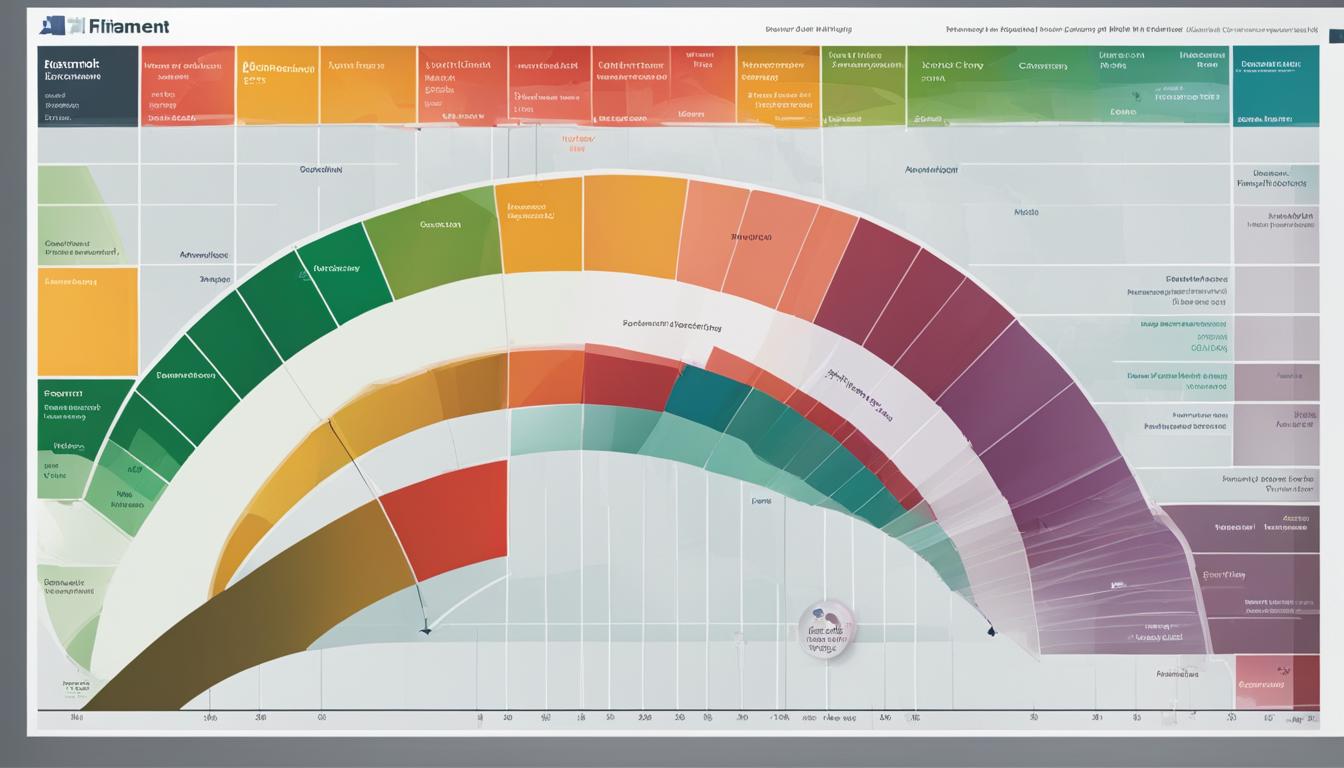When it comes to our financial goals, it is not just about the numbers. Our net worth is deeply intertwined with our self-worth, self-esteem, and self-image. The way we perceive ourselves and the value we place on ourselves directly impacts our financial situation and outcomes. Understanding the connection between money goals and self-worth is essential for achieving financial success and personal growth.
Many of us have subconscious beliefs about our self-worth that can hold us back financially. These limiting beliefs can manifest as feelings of unworthiness, low confidence, and a lack of belief in our ability to earn and grow our wealth. When we let go of these negative beliefs and start valuing ourselves more, the barriers to financial abundance start to dissolve.
On the flip side, healing emotional wounds related to money can also lead to an increase in net worth. By addressing and resolving any negative emotions, traumas, or self-sabotaging behaviors we may have around finances, we open ourselves up to greater financial opportunities. By nurturing our self-worth and self-esteem, we are more likely to take risks, pursue lucrative ventures, and attract abundance into our lives.
Key Takeaways
- Self-worth is directly linked to net worth, and addressing our self-worth can positively impact our financial situation.
- People with higher self-worth tend to earn more money and are more likely to save, invest, and take risks.
- Accepting compliments and practicing self-care are crucial for developing a healthy self-esteem.
- Healing emotional wounds related to money can lead to an increase in net worth.
- Developing a healthy self-worth is essential for achieving financial success and overall well-being.
The Connection Between Self-Worth and Net Worth
Our perception of ourselves and our belief in our worthiness of money directly correlates with our net worth. When we have a healthy level of self-worth, we are more likely to set and achieve financial goals and make sound financial decisions. Research suggests that individuals who earn higher incomes often have a higher level of self-worth, while those who struggle with their self-perception may find it challenging to build wealth.
One factor that can influence our net worth is the habit of comparing ourselves to others. When we constantly compare our financial situation to that of others, it can lead to overspending and financial anxiety. It’s important to remember that everyone’s financial journey is unique, and focusing on our own progress is key to financial success.
Developing a healthy self-esteem is crucial for improving our net worth. Accepting compliments and being grateful for what we have can contribute to developing a positive self-perception. When we believe in our own self-worth, we are more likely to take steps towards financial success, such as investing, saving, and pursuing higher-paying career opportunities.
“Believing in yourself is the first step to success.”
To illustrate the connection between self-worth and net worth, consider the following table:
| Self-Worth Level | Net Worth |
|---|---|
| Low | $50,000 |
| Medium | $200,000 |
| High | $1,000,000 |
In this table, we can see that individuals with a higher level of self-worth tend to have a higher net worth. This is not a coincidence, as our self-perception and beliefs about our own worthiness of wealth can shape our financial outcomes.
Overall, understanding the connection between self-worth and net worth is crucial for personal growth and financial success. By working on our self-perception, setting financial goals, and developing a positive mindset, we can improve both our self-worth and our net worth.
Calculating and Tracking Your Net Worth
Understanding your financial standing is crucial for achieving your financial goals. One effective way to assess your financial situation is by calculating and tracking your net worth. Net worth is the difference between your assets and liabilities.
Your assets encompass a range of valuables, including investments, bank accounts, real estate, and other valuable possessions. On the other hand, liabilities represent any outstanding debts you owe, such as mortgages, loans, and credit card debt.
Calculating your net worth periodically provides a clear snapshot of your financial health. It allows you to evaluate your progress towards your financial goals and make informed decisions about your finances. Tracking your net worth over time can help you identify trends, set realistic targets, and plan for the future.
Accuracy is essential when valuing your assets to ensure an accurate calculation of your net worth. It’s important to consider conservative estimates and avoid inflating your net worth. By doing so, you gain a realistic understanding of your financial position and can make more informed decisions about your long-term financial goals.
One strategic approach to tracking your net worth is by using a spreadsheet or an online tool designed for this purpose. These tools typically allow you to input your assets and liabilities easily, providing an ongoing record of your financial progress.
Taking the time to calculate and track your net worth contributes to your overall financial well-being. It helps you evaluate your financial decisions, make adjustments when necessary, and stay on track towards achieving your financial goals.
Remember, calculating and tracking your net worth is an ongoing process. As your financial circumstances change, regularly revisiting and reassessing your net worth enables you to adapt your plans and make informed financial choices.
To illustrate the importance of net worth calculation, consider the following table:
| Assets | Amount (USD) |
|---|---|
| Cash and Savings | $50,000 |
| Investments | $150,000 |
| Real Estate | $300,000 |
| Total Assets | $500,000 |
Liabilities
| Liabilities | Amount (USD) |
|---|---|
| Mortgage | $200,000 |
| Student Loans | $50,000 |
| Credit Card Debt | $10,000 |
| Total Liabilities | $260,000 |
In this example, the individual’s net worth is calculated by subtracting the total liabilities ($260,000) from the total assets ($500,000). Their net worth amounts to $240,000.

Self-Worth Formation and External Factors
Self-worth is a complex construct that develops through a combination of various factors, including family values, life experiences, and societal influences. The formation of self-worth begins from an early age and continues to evolve throughout our lives.
Individuals who come from loving and encouraging families, where they receive positive reinforcement, are more likely to have higher self-worth. When children grow up in an environment that nurtures their self-esteem, they develop a sense of confidence and belief in their own abilities. This positive upbringing sets a solid foundation for their self-worth as they navigate through life.
On the other hand, individuals who have faced abuse or constant criticism may struggle with lower self-worth. Negative experiences and harsh judgments can significantly impact their perception of themselves, leading to feelings of unworthiness or a lack of confidence.
Furthermore, societal expectations play a crucial role in shaping our self-worth. From a young age, we are bombarded with messages and standards that define what is considered valuable and desirable. Society often places a strong emphasis on external factors such as appearance or financial success as markers of worthiness.
“The danger lies in attaching our self-worth to these external factors,” warns psychologist Dr. Rebecca Davis. “When our self-worth becomes contingent on meeting societal expectations, we become more susceptible to feelings of inadequacy and the perpetual pursuit of material possessions as a means of validation.”
Research has revealed that individuals who attach their self-worth to external factors are more likely to be materialistic and seek social validation through their possessions. This relentless pursuit of acquiring material goods as a measure of self-worth can have detrimental effects on mental health and overall life satisfaction.
To foster a healthy self-worth, it is important to recognize and challenge these external influences. By shifting the focus towards internal qualities, personal growth, and intrinsic values, individuals can develop a more authentic sense of self-worth that is not reliant on external validation.
In summary, self-worth formation is influenced by a combination of factors, including family values, life experiences, and societal expectations. While external influences can impact our self-perception, it is essential to cultivate a self-worth that is rooted in intrinsic qualities and personal growth, rather than societal norms or material possessions.
Separating Self-Worth from Net Worth
When it comes to our self-worth, it’s crucial to detach it from external measures like money and material possessions. By reassessing personal values and embracing intrinsic measures of self-evaluation, we can develop a healthier and more authentic sense of self-worth.
One way to achieve this is through self-reflection and taking inventory of what truly matters in life. What are the values that define us beyond our financial status? Is it our relationships, personal growth, or making a positive impact on others? By shifting the narrative from external validation to self-love and acceptance, we can anchor our self-worth in deeper, more fulfilling aspects of our lives.
Avoiding the constant comparison with others is another essential step in separating self-worth from financial success. In today’s social media-driven world, it’s easy to fall into the trap of comparing our lives and accomplishments with those we see online. However, this only serves to undermine our self-esteem and perpetuate a cycle of inadequacy. Instead, focusing on our unique journeys, strengths, and personal growth allows us to appreciate our individual worth without the need for external validation.
Furthermore, changing our environment can play a significant role in broadening our perspectives and strengthening our self-worth. Surrounding ourselves with supportive and uplifting individuals who prioritize intrinsic values can help us maintain a positive mindset and reinforce our self-worth. Cultivating connections with people who appreciate us for who we are, rather than what we have, fosters a sense of belonging and genuine self-esteem.
Remember, true self-worth is not determined by the size of our bank accounts or the possessions we own. It is the recognition of our inherent value as human beings, the qualities that make us unique and worthy of love and respect. By consciously separating self-worth from money, embracing our intrinsic values, and surrounding ourselves with positivity, we can cultivate a deeply rooted self-esteem that transcends any financial measure.

| Strategies to Separate Self-Worth from Net Worth |
|---|
| 1. Self-reflection: Take time to reflect on personal values and what truly matters in life. |
| 2. Shift the narrative: Focus on self-love and acceptance rather than seeking external validation. |
| 3. Avoid comparison: Steer clear of comparing yourself to others, especially on social media. |
| 4. Surround yourself with support: Build a network of positive and uplifting individuals who appreciate you for who you are. |
How Do Money Goals Reflect Emotional Wealth and Happiness?
Setting and achieving financial goals can impact emotional wealth and happiness. When we reach our money goals, it brings a sense of accomplishment and security, leading to greater emotional wealth. Having a clear vision of our financial future helps create peace of mind and overall happiness.
Conclusion
Self-worth is a complex and multifaceted concept that is influenced by various factors. While there is a clear connection between self-worth and net worth, it is crucial to separate one’s sense of worthiness from external measures such as money and possessions. True personal growth and fulfillment come from developing a healthy self-esteem that is not reliant on material wealth.
By reassessing personal values and focusing on intrinsic worth, individuals can cultivate a stronger sense of self-worth. This involves recognizing and appreciating one’s unique qualities, talents, and abilities, rather than relying on external validation or societal standards. When we prioritize our own self-worth based on genuine self-acceptance and self-love, we open ourselves up to personal growth opportunities and a greater sense of fulfillment.
Investing in personal growth and self-worth not only positively impacts our overall well-being but also contributes to financial success. When we believe in our own value and worthiness, we are more likely to set and achieve meaningful financial goals. Additionally, a healthy self-worth allows us to make conscious financial decisions, including saving, investing, and pursuing entrepreneurial endeavors with confidence and resilience.
FAQ
How does our net worth relate to our self-worth?
The state of our net worth is directly linked to our self-worth. When we let go of limiting beliefs about our self-worth, our money issues start to dissolve. On the other hand, healing emotional wounds surrounding finances can lead to an increase in net worth.
How does self-worth impact our financial success?
People with higher self-worth tend to earn larger sums of money and are more likely to save, invest, and take risks like starting a business. Research suggests that individuals who earn higher incomes often have a higher level of self-worth.
How do I calculate and track my net worth?
Net worth is the difference between your assets (investments, bank accounts, real estate) and liabilities (mortgages, loans, credit card debt). Calculating your net worth periodically provides a snapshot of your financial situation and allows you to evaluate your progress towards your financial goals. Tracking your net worth over time helps in planning for the future.
What factors contribute to the formation of self-worth?
Self-worth develops through a combination of family values, life experiences, and societal influences. Individuals who come from loving and encouraging families and receive positive reinforcement are more likely to have higher self-worth. On the other hand, those who faced abuse or constant criticism may have lower self-worth.
How can I separate my self-worth from my net worth?
It is possible to separate self-worth from net worth by reassessing personal values and focusing on intrinsic measures of self-evaluation. Taking inventory of what truly matters in life and shifting the narrative from external validation to self-love and acceptance can help in developing a healthier self-worth.
What is the importance of separating self-worth from financial success?
While there is a connection between self-worth and net worth, it is essential to separate one’s sense of worthiness from external measures such as money and possessions. By reassessing personal values, focusing on intrinsic worth, and surrounding oneself with positive influences, individuals can foster a healthier self-esteem and achieve personal growth.




